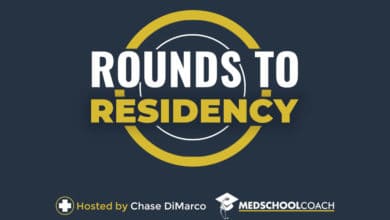Dr. Brian Dooreck teaches general education, specialty-related obstacles in education, and simple recommendations for learners and patients to follow for a healthier self.
Dr. Brian Dooreck is a private practice gastroenterologist in South Florida. He actively produces “Lunch with Dr. Dooreck,” educational videos for the LinkedIn community, and has 11 years of clinical education experience. Today, he will teach us about the concerns with teaching general education, specialty-related obstacles in education, and simple recommendations for learners and patients to follow for a healthier self.
Gastroenterology is an exciting mixture of procedures and follow-ups that gives practitioners and medical students a variable clinical experience. With specialties heavy in procedural tasks, the “see one, do one, teach one” model is still a great educational paradigm to follow. It covers not only the gastrointestinal tract but also many aspects of the hepatobiliary systems as well. Due to the broad coverage, it is a profession that almost everyone can relate to in some manner or another. After all, who hasn’t had an upset stomach or GI distress?
In GI, there are many fluids involved in the exams and procedures conducted. Dr. Dooreck emphasizes that the number one rule in safety is using your personal protective gear. Viral transmission of disease is a rare but important transmissible disease aspect to be conscious of in this specialty. However, a preceptor should also focus on the conceptual knowledge of the students under them. The anatomy and physiology involved in these organ systems can easily be overlooked by students focusing on board exam material.
Brian also wants to point out that medicine is an interactional dialogue between colleges. Teaching medicine should hold many of the same guidelines. In this way, teachers and students are closer to equals and can foster earnest and collaborative decision making and discussions.
Students would benefit greatly from having a genuine interest in the specialty if they desired a clinical experience in GI. Attending the procedures and taking initiative to learn specialty-related materials on one’s own time can allow a student to shine. Going home with a list of questions and topics to explore allows for active engagement in one’s own studies is beneficial as well. Watch procedures online (such as from JOMI) to learn on your own time. Demonstrating commitment and effort are key requirements to attaining a strong letter of recommendation from your clinical rotations.
You can check out more from Dr. Dooreck via his website or by connecting with him on LinkedIn.
